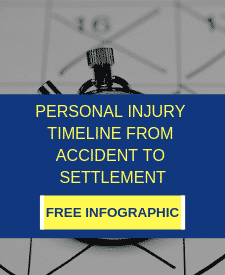Mental anguish, a form of severe emotional pain and psychological distress, can be as debilitating as physical injuries. Symptoms such as anxiety, depression, flashbacks, and grief may arise, impacting one’s ability to work, socialize, and maintain a consistent quality of life. Pursuing compensation for mental injuries is not as straightforward as seeking compensation for physical pain. So, is a mental anguish lawsuit possible? Let’s dive in.
The Validity of Mental Anguish as Grounds for Legal Action
Dealing with emotional distress after an accident or incident caused by another person or entity’s reckless or negligent actions can be overwhelming. While your suffering should not be underestimated, it’s essential to ascertain if it’s actionable. You might be able to initiate a mental anguish lawsuit if you experience significant depression, anxiety, fear, distress, sadness, or trauma (e.g., shock, confusion, anger, irritability, disruptions in concentration and sleep).
The Connection Between Mental Anguish Lawsuits and Personal Injury Claims
Typically, a mental anguish lawsuit must be connected to another personal injury claim. In most cases, you cannot sue for mental anguish alone; there must have been a physical impact. For example, in Florida, the impact rule states that you must be “touched” or “harmed” physically to successfully sue for emotional distress and mental anguish. Exceptions exist, such as cases involving defamation, threats of serious physical harm, or witnessing the injury or death of a family member.
Tackling the Complexities of Mental Anguish Lawsuits

The intricate nature of mental anguish laws can make it challenging to determine if you have a case and pursue compensation. Consult with an experienced personal injury attorney to help you explore your options and develop an effective argument for damages. If successful, you may receive “non-economic” damages, which compensate you for damages that are not easily quantifiable, such as loss of enjoyment, loss of reputation, pain and suffering, PTSD, and long-term effects of your injury.
Evaluating the Severity of Mental Anguish in Legal Cases
Mental anguish extends beyond typical feelings of anger, sadness, embarrassment, or frustration, particularly in the immediate aftermath of an accident or incident. When your suffering is severe, ongoing, and prevents you from functioning normally, you may have grounds for a mental anguish lawsuit. However, the legal grey areas and difficulties in quantifying mental and emotional suffering make it crucial to work with personal injury law experts to determine your best course of action.
Essential Elements to Prove in a Mental Anguish Lawsuit
To successfully pursue a mental anguish lawsuit, you need to prove the following elements:
- Duty of care: The defendant owed you a legal duty to exercise reasonable care.
- Breach of duty: The defendant breached their duty of care by acting negligently, recklessly, or intentionally.
- Causation: The defendant’s actions directly caused your mental anguish.
- Damages: Your mental anguish resulted in significant damages, such as lost wages, medical expenses, or diminished quality of life.
Addressing Challenges in Mental Anguish Lawsuits
One of the primary obstacles in mental anguish lawsuits is establishing causation between the defendant’s actions and your emotional distress. This requires substantial evidence, such as medical records, psychological evaluations, and expert testimony. It’s also essential to demonstrate the severity and duration of your suffering to prove that it has caused significant impairment in your daily life.
Strategies to Strengthen Your Mental Anguish Lawsuit
To strengthen your mental anguish lawsuit, consider taking the following steps:

- Gather Evidence: Collect all relevant documentation to support your claim, such as medical records, therapy notes, and witness statements. The more evidence you have, the stronger your case will be.
- Obtain Expert Testimony: Consult with mental health professionals and other experts to assess the severity of your emotional distress and provide testimony in your favor. Expert opinions can lend credibility to your claim and help quantify your suffering.
- Keep a Journal: Maintain a detailed record of your emotional state, including your thoughts, feelings, and daily struggles. A journal can provide insight into the extent and duration of your mental anguish, demonstrating its impact on your life.
- Seek Professional Help: Engage in therapy or counseling to address your emotional distress. Not only can this assist in your recovery, but it also establishes a record of your attempts to mitigate the effects of your mental anguish.
- Partner with an Experienced Attorney: Collaborate with a knowledgeable personal injury lawyer who specializes in mental anguish lawsuits. A skilled attorney will guide you through the legal process and advocate for your best interests.
Frequently Asked Questions
What is the definition of mental anguish?
Mental anguish refers to severe emotional pain and psychological distress that one may experience after a traumatic event or personal injury caused by another person or entity’s actions.
Can you sue someone for giving you depression?
It is possible to sue someone for causing depression if you can prove that their actions directly led to your depression and it significantly impacted your life.
Can you sue someone for mental anguish?
Yes, you can sue someone for mental anguish in certain cases. Typically, your claim for mental anguish must be connected to another personal injury claim, and you must have been physically impacted in most cases.
What are examples of mental anguish?
Examples of mental anguish include extreme fear, anxiety, depression, grief, and other post-traumatic symptoms that negatively impact a person’s daily life and ability to function.
What is the mental anguish law in Florida?
In Florida, the impact rule requires a person to have been physically “touched” or “harmed” to successfully sue for emotional distress and mental anguish. Exceptions to this rule exist, such as in cases of defamation, threats of serious physical harm, or witnessing the injury or death of a family member.
Can you sue someone for emotional distress in Florida?
Yes, you can sue someone for emotional distress in Florida if you can establish that their actions directly led to your emotional distress and meet the requirements of the impact rule or its exceptions.
Take Action Today with LaBovick Law Group
In conclusion, mental anguish lawsuits can be a complex and challenging process, but you don’t have to navigate these murky waters alone. If you or a loved one has suffered severe emotional distress due to the actions of another party, the compassionate and experienced legal team at LaBovick Law Group is here to guide you every step of the way.
Don’t let the intricacies of mental anguish laws deter you from seeking justice and compensation. Contact LaBovick Law Group today to discuss your case, and let us help you develop a compelling argument for damages. With our dedication and expertise, you can rest assured that we will fight tirelessly for your rights and the compensation you deserve. Call us now to schedule a free, no-obligation consultation and take the first step towards reclaiming your life.




